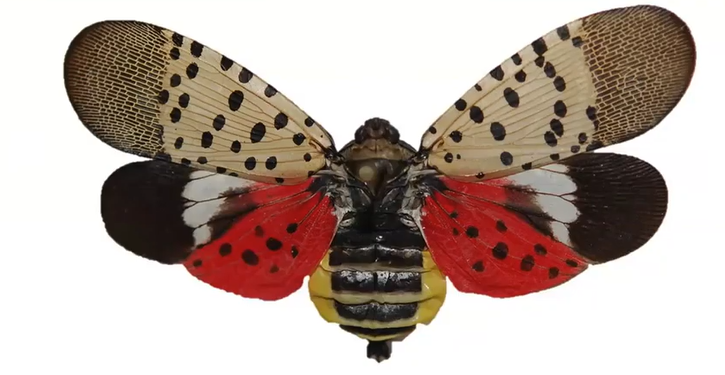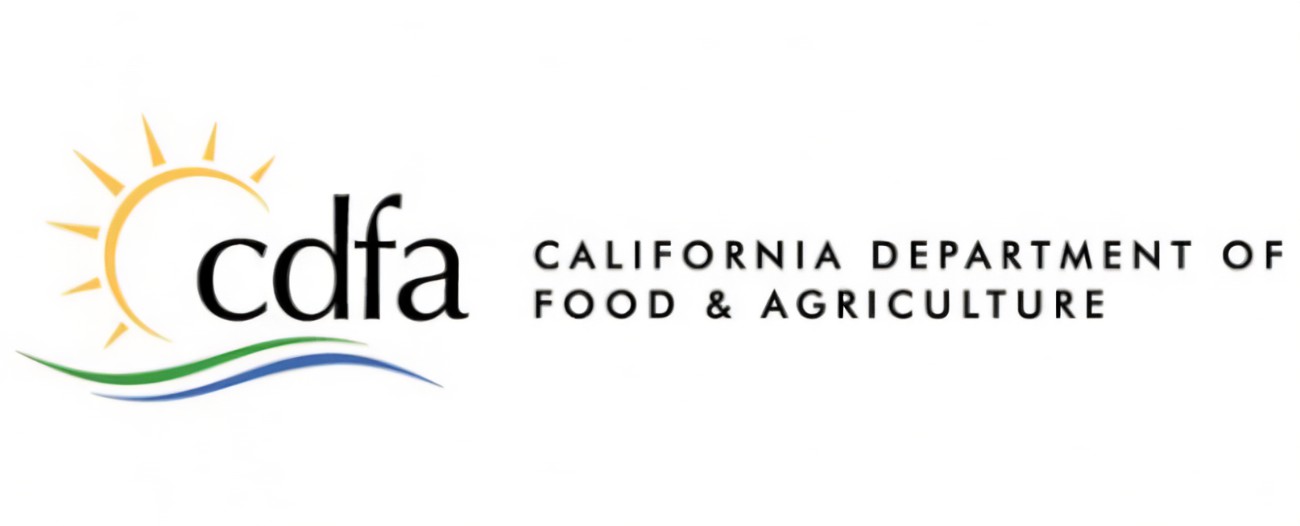Extension Foundation Online Campus
About the course
This course is functioning as a repository for UC Master Gardener Program related training that volunteers can view remotely. Recordings, online resources and quizzes, for volunteers will be posted here as they become available.
These training's count towards continuing education hours for UC Master Gardener volunteers.
Enrollment is free, click the Enroll me button to access the course.

- Coordinator: UC Master Gardener Online Training Support
- Coordinator: Lauren Snowden
The Power of Pollinators provides materials and resources to empower Extension Master Gardeners, Certified Volunteer Naturalists and others to teach about pollinators with three PowerPoint programs (including notes and resources). Contact: Denise Ellsworth (ellsworth.2@osu.edu) at The Ohio State University.
- Teacher: Denise Ellsworth

Course overview
The spotted lanternfly (Lycorma delicatula) is an invasive insect that is currently in the mid-Atlantic United States and has the potential to settle in California and have a profound impact on our agriculture and natural environment. A key to slowing the spread of spotted lanternfly is early detection and rapid response, which requires education of citizens and resource professionals. This course explores the pest's lifecycle, how they feed, travel and what to do if you see it in California.
Who should enroll?
Residents of California, Master Gardeners, Arborists, Nursery Professionals, and other stakeholders.
How to enroll
Continuing Education Units
- UC Master Gardeners are eligible for 1 hour of continuing education (CE) for completing this course.
- International Society of Arboriculture (ISA) (1.0 for ISA Certified Arborists, 1.0 Utility Specialist, 1.0 Municipal Specialist, 1.0 Climber Specialist, 1.0 Aerial Lift Specialist). To get the ISA Continuing Education Units certificate you will be charged a fee of $30.
Need Help?
- For assistance with login, course enrollment, contact campushelp@extension.org
- For assistance with progress through the course or certificate, contact mgtraining@ucanr.edu
The California Department of Agriculture and the University of California Master Gardener Program.
Teacher
Lauren Snowden, UC Master Gardener Online Training Specialist


- Teacher: Esther McGinnis
- Teacher: Shannon Ueker
Mitigating Pollinator Decline in Landscapes is an online course for Master Gardeners looking for further certification or home gardeners. Students will learn the basics on different kinds of bees, why they are in decline, and how homeowners can work to conserve them in the landscape. Once you have completed this course and received a certificate, you will receive Master Gardener credit.
For information or to enroll please contact:
Mary Meyer, meyer023@umn.edu or
Echo Martin, mart1794@umn.edu with University of Minnesota
- Teacher: Vera Krischik
Managing Invasive Species in Landscapes is an online course for Master Gardeners looking for further certification or home gardeners.
Students will learn how to identify and manage a variety of invasive species such as spotted wing drosophila, brown marmorated stink bug, Japanese beetles, and downy mildew. Once you have completed this course and received a certificate, you will receive Master Gardener credit.
For information or to enroll please contact:
Mary Meyer, meyer023@umn.edu or
Echo Martin, mart1794@umn.edu with University of Minnesota
- Teacher: Vera Krischik
- Teacher: Mary Meyer
Idaho Victory Garden is designed for individuals interested in learning more about creating a Victory Garden on their property. No prerequisites are required. Prepare your family to grow, eat and preserve fresh, healthy food and save money doing it. The Valley County Victory Garden online class is paired with two in-person session. Call the local office to learn more about the dates and location of these classes at 208-382-7190. For more information or to enroll contact Melissa Hamilton, University of Idaho, at mbhamilton@uidaho.edu.
- Teacher: Melissa Hamilton

This course is now open for free access to registered users February 1, 2025 through December 31, 2025. To register, follow the link below!
The Idaho Victory Garden Course is designed for anyone interested in growing, eating and preserving more of their own fresh fruits, vegetables and herbs at home or in community gardens. No prerequisites are required. Grow, eat and preserve fresh, healthy food and save money doing it! For instant access to this free course, please register! For more information you may also contact Ariel Agenbroad, University of Idaho Extension Educator, at ariel@uidaho.edu
- Teacher: Ariel Agenbroad
Growing Tomatoes with IPM is designed for Master Gardeners who will learn how to prevent pests on tomatoes from the beginning to the end of the growing season through lessons on variety selection, best planting practices, and cultural information and will be instructed on how to recognize leaf spots, early and late blight and bacterial spot.
Once you register for the class, you will have unlimited time to complete the work at your own pace. Once you have completed this course and received a certificate, you will receive Master Gardener credit worth 3 CEUs.
For more information, contact: Mary Meyer, University of Minnesota, meyer023@umn.edu
- Teacher: Mary Meyer
Growing Strawberries with IPM is an online course for Master Gardeners looking for further certification or home gardeners. Students will learn the basics on what to consider when planting strawberries, as well as IPM-based strategies for controlling common pests and diseases.Once you have completed this course and received a certificate, you will receive Master Gardener credit.
For information or to enroll contact:
Mary Meyer, meyer023@umn.edu or
Echo Martin, mart1794@umn.edu with University of Minnesota
- Teacher: Vera Krischik
- Teacher: Mary Meyer
In the 'Growing Squash, Cucumbers and Pumpkins with IPM' course, Master Gardeners will learn about growing cucurbits, including plant selection and insect and disease management.
Once you register for the class, you will have unlimited time to complete the work at your own pace. Once you have completed this course and received a certificate, you will receive Master Gardener credit worth 3 CEUs.
For more information, contact: Mary Meyer, University of Minnesota, meyer023@umn.edu
- Teacher: Mary Meyer
In the 'Growing Raspberries and Blackberries with IPM' course, Master Gardeners will learn the best maintenance techniques for growing brambles, including insect and disease management. This course places special emphasis on a new insect pest, the spotted wing drosophila.
Once you register for the class, you will have unlimited time to complete the work at your own pace. Once you have completed this course and received a certificate, you will receive Master Gardener credit worth 3 CEUs.
For more information, contact Mary Meyer University of Minnesota, at meyer023@umn.edu
- Teacher: Mary Meyer
Growing Apples with IPM is an online course for Master Gardeners looking for further certification or home gardeners. Students will learn what to consider when planting an apple tree, and IPM-based strategies for controlling common pests and diseases. Once you have completed this course and received a certificate, you will receive Master Gardener credit.
For information or to enroll contact:
Mary Meyer, meyer023@umn.edu or
Echo Martin, mart1794@umn.edu with University of Minnesota
- Teacher: Mary Meyer
By taking this course, students will learn: good ag practices that help prevent foodborne illness from fresh produce. If you are an urban gardener and produce food for family and friends, this is the course for you.
This course contains audio and video so you will need a computer that can play both.
For more information or to enroll please contact: Cindy Brison
- Teacher: Deborah Weitzenkamp
- Instructor: Cindy Brison, MS, RDN
School gardens are proven to help youth establish healthy eating habits, connect them with math and science curriculum in the garden, and teach them to be environmental stewards. Just Add Water: School Garden Workshop for Teachers will give teachers, parents, and school administrators and volunteers the skills they need to implement a successful school garden program.
For information contact: Ariel Agenbroad at ariel@uidaho.edu
- Instructor: Ariel Agenbroad
Thursday evening class sessions | Live via Zoom
February 18, 25 and March 4 & 11
5:30 - 7:30 pm PST / 6:30 - 8:30 pm MST
Wondering what to do to create a sustainable market garden in Idaho? If you’re interested in small-scale production of vegetables, fruits, culinary herbs, or cut flowers to sell, this course is for you! We will focus on in-depth production skills and taking what you grow to market. Join our group of Extension Educators and farmer collaborators for presentations and activities to guide you through the production year. From farm planning, to harvesting, washing and packing you will come away with skills needed to run a more sustainable and efficient farm.
- Teacher: Colette DePhelps
Interested students should contact course instructors for more information. Gail Reynolds gail.reynolds@uconn.edu
- Teacher: Dawn Pettinelli
- Teacher: Gail Reynolds
